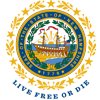SWAP Audit
Wildlife Habitat and Natural Resource Protection Audit of Town Documents
Natural resources make important contributions to New Hampshire's economy, rural character, and quality of life. When these resources are degraded you may feel frustrated and want to learn how you can prevent it from happening again. You may have already experienced the effects of lost natural resources by noticing loss of wildlife, loss of open space and recreational areas, contamination of ground and surface waters, and increased erosion and flooding. These concerns may have already been addressed in your town's Conservation or Open-Space Plan, but they must also be considered in other town planning documents. New Hampshire land use law designates the Master Plan as the basis for all municipal land use regulations. If your town's Master Plan does not address natural resource protection, subsequent ordinances and regulations cannot be implemented.
We have developed a Wildlife Habitat and Natural Resource Protection Audit to review your town's Master Plan, Zoning Ordinances, and Subdivision and Site Plan Review Regulations with respect to 25 topics pertaining to wildlife habitat and natural resources.
Read on to learn more about how to use the Wildlife Habitat Audit materials, or download Addressing Wildlife Habitat and Natural Resource Protection In Municipal Land Use Documents: Ideas for New Hampshire Municipalities to get started.
Why Conduct an Audit?
A Wildlife Habitat and Natural Resource Protection Audit provides an assessment of the current level of protection for wildlife habitat and natural resources afforded by a town's land use planning regulations and identifies additional opportunities for regulatory protection. Natural resources make important contributions to New Hampshire's economy, rural character, and quality of life. In New Hampshire, a Master Plan must include a Land Use section (RSA 674:2 II) and can provide more detailed information regarding natural resources, including wildlife habitat (RSA 674:2 III).
If natural resources are addressed in your town's Master Plan, how well are they defined and therefore protected? Protecting natural resources contributes to better human health, economy, and quality of life by promoting clean water, clean air, recreational opportunities, and rural character. While natural resources are important, not everyone thinks protection of natural resources should be a top priority. This review can serve as the basis for community education and civic discussion as well as revisions to land use documents. This audit was developed for New Hampshire Fish and Game by New Hampshire Audubon and The Jordan Institute.
To do this audit you will need to have a copy of your town's Master Plan, Zoning Ordinances, and Subdivision and Site Plan Review Regulations.
The audit addresses the following 25 topics:
- Agriculture
- Energy Efficiency
- Erosion Control
- Floodplains
- Forestry
- Forests
- Greenfield Development
- Green Infrastructure
- Groundwater
- Growth Management
- Impervious Surfaces
- Landscaping
- Light Pollution
- Natural Hazards
- Natural Services Network
- Natural Vegetation
- Ridgelines
- Shorelands, Surface Waters, and Wetlands
- Sprawl
- Steep Slopes
- Stormwater Runoff
- Terrain Alteration
- Urban Growth Boundary
- Watersheds
- Wildlife Habitat



